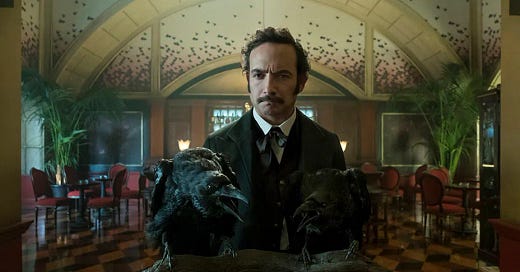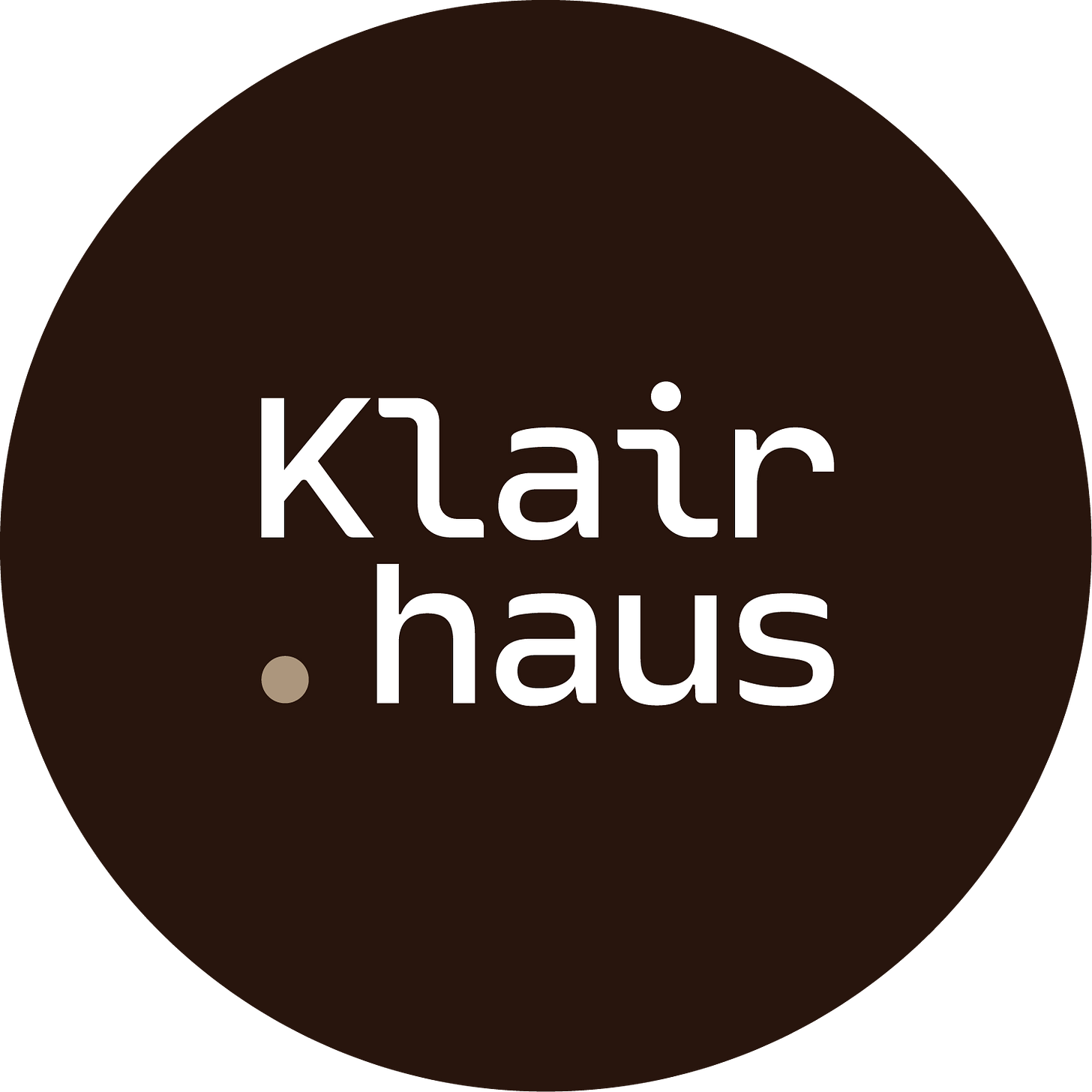Tell #86 - AI predictions for hotels in 2025
AI for hotels in 2025, my predictions. The PMS Wars are still going strong. Walmart made a shoppable Christmas movie, soon a shoppable hotel? Or just a hotel movie?
Hello,
AI is still the main point of focus for so much of the media industry. Luckily it can’t replace the rooms in a hotel or the beds in the rooms. But what will it mean for next year? I share my thoughts below.
Best, Martin
Sponsored by Klairhaus. Support the newsletter, treat someone to great office gadgets.
Personalization or no personalization?
The travel and hospitality industries are often focused on personalization, but there's a growing argument for creating iconic, shared cultural experiences instead. While personalization can drive loyalty, it is still a long way for being natural. Over focusing on artificially trying to personalize things creates the reverse effect. See my column below. An interesting trend in anti-personalization could become a new way to build brand loyalty and differentiate in the market.
ANTI-PERSONALIZATION TREND COMMODITY VS EXPERIENCE
Google vs AI search
Google's U.S. search ad market share is expected to drop below 50% by 2025 due to competition from platforms like TikTok and OpenAI's SearchGPT. This could reduce the effectiveness of Google's travel ad network. Hotels and companies need to rethink how they manage search engine optimization. The ad business will change, but being discovered through new methods of search will be much harder to adapt to, see my previous column on zero-click search.
GOOGLE SEARCH CHALLENGES
About me: I'm a fractional CMO for large travel technology companies helping turn them into industry leaders. I'm also the co-founder of 10minutes.news a hotel news media that is unsensational, factual and keeps hoteliers updated on the industry. PMS Wars are still going
Two modern PMS CEO’s sharing an interview and promoting their message is quite unique. As I’ve said a few times, the PMS Wars are on. It isn’t a very public battle but behind the scenes the PMS players are on a battle to take market share. I don’t think any of the cloud PMS players are profitable yet, they’re all in growth mode. The market needs to ensure there is no monopolistic behavior, because that is part of what led to the slow tech adoption in the industry. But I don’t think that is a problem now, the problem is going to be reaching enough hotels fast enough and convincing them to switch.
HOTEL OPERATIONS CLOUD PMS WARS
Italy travel box and people
Italy has decided to make key-boxes illegal for rentals. I will admit I never understand political motivations. The official line is that this is to bring back the human touch, and I’ll go with that. There is something about being welcomed by a human compared to a code and a box. A hotel I stayed at a year or so ago had a keybox for night arrivals - it wasn’t a great experience. I understand the problem, but it still wasn’t a great experience, what if I can’t find the room? What if the key doesn’t work? So for all the tech in the world, there is a huge plus when one is greeted by a real person (this does not justify slow check-in processes :).
ITALY TRAVEL REGULATION
TikTok Shop: The New Online Shopping Monarch
TikTok Shop has become a force to recon with in online shopping, with impressive revenue projections and user engagement statistics. Not many discovery platforms (media) have also become marketplaces and few marketplaces have become great discovery platforms. Yes OTAs are somewhat discovery platforms, but there was already a pretty solid idea of the destination before going to the OTA. Tiktok has managed both in e-commerce. Could that extend to travel?
TIKTOK SHOP DOMINANCE
Walmart's Shoppable Christmas Movie
Walmart's partnership with Roku to create a shoppable Christmas movie represents an innovative approach to marketing. Many hotels have gotten a boost with movies shot there. But what if hotels actively sought to create these with streamers? How to make something interesting that doesn’t position the hotel as a scene of a crime? All kinds of ideas. But it does make for great marketing. Oh and maybe they’ll make a shoppable hotel soon. Because everything is becoming an ad now.
WALMART ROKU PARTNERSHIP
Podcast: I was invited on the Hospitality Daily Podcast and spoke about technology in hospitality, some thoughts on what wont change in hospitality, and why I co-founded 10minutes.news. Best, MartinOpinion
What is AI going to bring hotels in 2025?
Let’s cut through the noise for a moment. AI is not just hype anymore—it’s the biggest shift in tech since the internet made floppy disks obsolete.
If you think about it, we’ve gone from a world where you had to tinker with RAM, “hello world” scripts, and endless if-else-end loops to…well, now you can tell a computer, “Make me something cool,” and it does—without knowing a line of code. That’s new. Really new.
For hotels, this means both opportunity and some risk. AI raises big questions around privacy and security, especially for an industry built on trust. But I don’t think this genie is going back into the bottle. Any tech that doesn’t understand context, typos, or guest needs will quickly feel outdated—frustrating both teams and guests.
So, what’s actually going to change in 2025 thanks to AI? Here’s what I think:
Content Creation on Turbo Mode: Marketing teams can crank out more content—faster. No excuses for stale Instagram feeds and outdated room descriptions anymore.
Hotels Will Have Their Own GPTs: Imagine this—upload all your PDFs, price lists, event schedules, and local tips into an AI chatbot. Share the link with guests so they can ask for answers instead of calling reception to find out when the pool closes.
Upselling Without the Pushiness: Guests will ask the hotel’s AI for recommendations—spa packages, late checkouts, dinner reservations—making upselling feel natural, not spammy.
Automated Review Replies: Responding to reviews becomes a breeze, …AI-generated reviews might start popping up too.
Communication Supercharged: AI handling guest messages, emails, and texts will go from “nice-to-have” to the norm. Guests will expect replies in minutes, not hours—and it will drive more direct revenue.
Meetings and Events Will Get Smarter: AI will help sales teams respond to RFPs faster, suggest multiple tailored options, and close deals without the back-and-forth.
Ending Repetitive Tasks: Many small, annoying workflows will get automated. They already are, but AI will expand what’s possible here, saving teams time on boring things that are slightly too unique to code, but too repetitive to be human tasks.
And personalization? I don’t think AI-driven personalization will feel like a revolution next year. Instead, it’ll be a slow, quiet evolution—things will gradually feel less and less irrelevant. One day, everything will just work, and the whole experience will seem “magical.” But it will not be a sudden shift.
Long-term? What we’re calling AI today will simply become…normal. Every system will interpret instructions and execute tasks more intuitively. The real risk for hotels? Falling behind.
For guests, waiting at the front desk while someone clicks through 25 screens to check them in feels like a mystery. I’m sure it makes sense to someone who built the system. But it doesn’t make sense to the guests. They’ve given you their data, they’ve prepped their ID—why 25 clicks?
The great thing is that AI isn’t coming to replace hospitality—it’s coming to help hotels do hospitality better.








